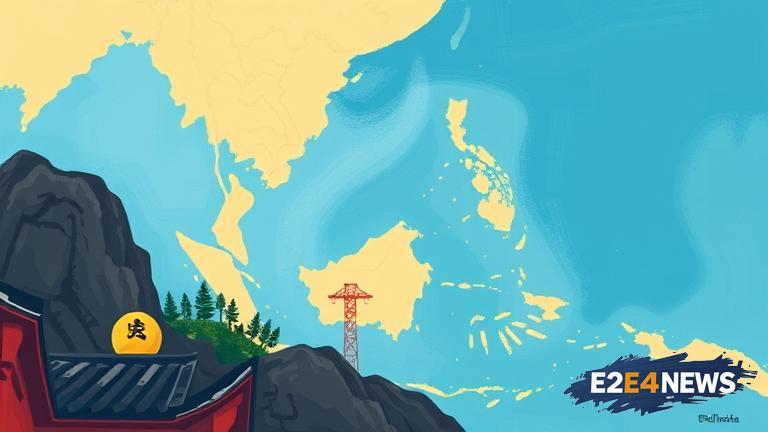Taiwan’s New Southbound Policy, launched in 2016, has been instrumental in fostering cultural exchange and economic cooperation with countries in Southeast Asia and South Asia. The policy aims to promote mutual understanding, people-to-people diplomacy, and economic ties between Taiwan and the participating countries. Through various initiatives, such as educational exchanges, cultural festivals, and trade missions, Taiwan has been able to strengthen its relationships with countries like Indonesia, Malaysia, the Philippines, and Vietnam. The policy has also led to an increase in tourism, with many Taiwanese travelers visiting Southeast Asian countries and vice versa. Furthermore, the policy has facilitated the exchange of students, researchers, and professionals, promoting the sharing of knowledge and expertise. In addition, Taiwan has been actively participating in regional organizations, such as the Association of Southeast Asian Nations (ASEAN), to enhance its engagement with the region. The policy has also led to the establishment of several bilateral agreements, including trade agreements, investment agreements, and memoranda of understanding. These agreements have paved the way for increased trade and investment between Taiwan and the participating countries. Moreover, the policy has promoted the development of Taiwanese businesses in Southeast Asia, with many companies setting up operations in the region. The policy has also encouraged the growth of small and medium-sized enterprises (SMEs) in Taiwan, which have been able to tap into the vast markets of Southeast Asia. In terms of cultural exchange, the policy has led to the organization of numerous cultural festivals, exhibitions, and performances, showcasing the rich cultural heritage of Taiwan and the participating countries. The policy has also promoted the learning of each other’s languages, with many Taiwanese students learning Southeast Asian languages and vice versa. Additionally, the policy has facilitated the exchange of artists, writers, and musicians, promoting cross-cultural understanding and creativity. The policy has also led to the establishment of several cultural institutions, including museums, galleries, and cultural centers, which have helped to promote the cultural exchange between Taiwan and the participating countries. Overall, Taiwan’s New Southbound Policy has been a significant success, promoting cultural exchange, economic cooperation, and mutual understanding between Taiwan and the participating countries. The policy has also contributed to the growth and development of Taiwan’s economy, with many Taiwanese businesses benefiting from the increased trade and investment opportunities. As the policy continues to evolve, it is expected to play an increasingly important role in promoting Taiwan’s engagement with the region and enhancing its position as a major player in the Asia-Pacific economy. With its strong focus on cultural exchange, economic cooperation, and people-to-people diplomacy, the policy is well-placed to promote lasting relationships between Taiwan and the participating countries. The policy has also been recognized internationally, with many countries praising Taiwan’s efforts to promote regional cooperation and understanding. In conclusion, Taiwan’s New Southbound Policy has been a groundbreaking initiative, promoting cultural exchange, economic cooperation, and mutual understanding between Taiwan and the participating countries. The policy has the potential to continue playing a major role in promoting Taiwan’s engagement with the region and enhancing its position as a major player in the Asia-Pacific economy. As the region continues to evolve, it is expected that the policy will continue to adapt, promoting even greater cooperation and understanding between Taiwan and the participating countries. The policy’s success has also been recognized by the international community, with many countries praising Taiwan’s efforts to promote regional cooperation and understanding. The policy has also contributed to the growth and development of Taiwan’s economy, with many Taiwanese businesses benefiting from the increased trade and investment opportunities. The policy’s focus on cultural exchange, economic cooperation, and people-to-people diplomacy has been particularly successful, promoting lasting relationships between Taiwan and the participating countries.
